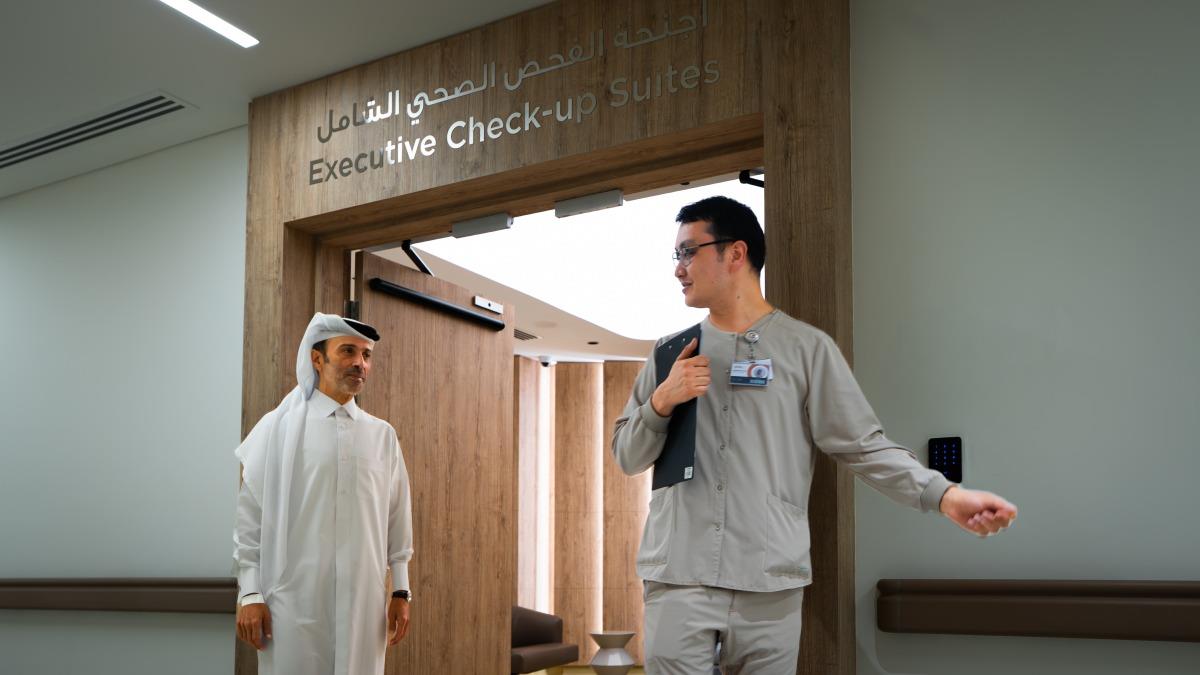
Korean Medical Center Drives New Standard In Executive Health
DOHA: In the high-stakes world of business, success often comes with a hidden price; your health. Studies cited in the Harvard Business Review reveal that over 70% of corporate leaders neglect regular health check-ups, despite mounting evidence linking their lifestyle to serious medical conditions.
The American Heart Association warns that long-term stress elevates blood pressure and increases inflammation; a deadly combination that can quietly develop into major health conditions. Yet many executives continue to ignore subtle warning signs like fatigue, headaches, or shortness of breath, dismissing them as minor inconveniences. For some, that choice proves fatal.
CEOs and executives are 40% more likely to suffer from heart disease than the average person, driven by a mix of chronic stress, sedentary habits, poor sleep, and irregular eating schedules.
Stress does more than drain your energy; it rewires your entire system. Research published in the Journal of the American Medical Association (JAMA) demonstrates that chronic stress elevates cortisol levels, a hormone that, when sustained, can wreak havoc on the body by damaging blood vessels, impairing insulin sensitivity, and raising cholesterol. Over time, this leads to conditions such as hypertension, coronary artery disease, and type 2 diabetes.
“We see it all the time,” says Dr. Sunpyo Lee, Head of Executive Health at the Korean Medical Center (KMC) in Lusail.“Many executives come to us after ignoring their health for years. They think they're managing fine until one day, they're not. That's when a seemingly small issue-like dizziness or exhaustion-turns out to be a red flag for something much more serious.”
For many CEOs, the biggest obstacle isn't lack of access to healthcare; it's mindset. Executives routinely postpone health screenings, telling themselves they can“get through one more quarter” before addressing their well-being.
The data tells a different story. A global survey conducted by Deloitte Insights found that fewer than 20% of executives regularly undergo preventive screenings. Yet those who do are 50% less likely to experience critical health events within the next five years. The evidence is undeniable: early detection saves lives and careers.
Dr. Lee draws a powerful analogy:“If your company was hemorrhaging cash, you'd order a full audit immediately. Your body is no different. You can't keep ignoring the warning signs and expect things to magically improve.”
Hamad Mubarak Al Hajri, CEO of Snoonu, knows this struggle all too well. In the early years of Snoonu's rapid expansion, Hamad often worked 16-hour days. At that time, Qatar lacked access to advanced executive health screening programs like those offered today at centers like KMC.
Like many executives, Hamad noticed signs of strain-occasional headaches, feeling tired more often, and struggling to stay focused during meetings. But nothing seemed urgent enough to warrant concern.“You think, 'This is just how it is,'” he recalls.
It wasn't until a friend recommended he get a full screening that he decided to take action. The results surprised him. Elevated cholesterol and early signs of inflammation signaled risks he hadn't expected.“It made me step back and think about how I was operating, not just the business, but myself,” Hamad explains.“When your health isn't in check, you're not performing at your best. And as a leader, that has consequences.”
KMC's Executive Health Center partners with South Korea's Asan Medical Center, a global leader in preventive medicine. The center offers a range of services, including cardiovascular screenings, early cancer detection, and metabolic evaluations. According to Dr. Lee, the goal is to provide more than just data.“We give our patients a roadmap for long-term success. It's about prevention and optimization, not just reacting to crises.”
Centers like KMC are designed to support this journey, helping leaders take a proactive approach to their well-being. Dr. Lee underscores the importance of acting sooner rather than later.“The time to take control of your health is now, before your body makes the decision for you. When you prioritize your health today, you secure your ability to lead tomorrow.”

Legal Disclaimer:
MENAFN provides the
information “as is” without warranty of any kind. We do not accept
any responsibility or liability for the accuracy, content, images,
videos, licenses, completeness, legality, or reliability of the information
contained in this article. If you have any complaints or copyright
issues related to this article, kindly contact the provider above.


















Comments
No comment